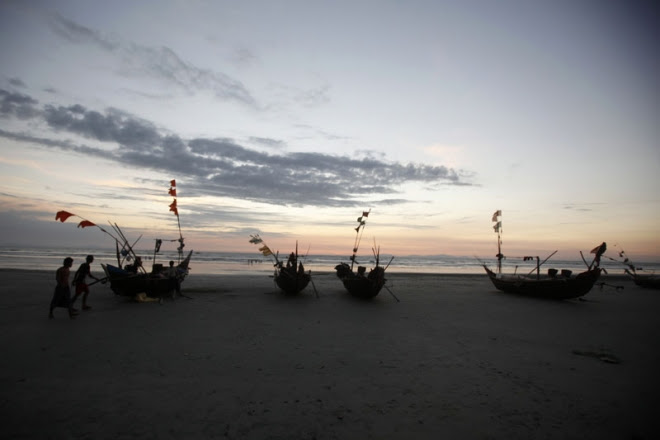The human rights of the residents from about 36 villages around the Dawei Special Economic Zone have been affected by the development of the economic zone and related projects, the Dawei Development Association says in a report.
According to research into 20 villages directly affected by the project, the land plots of residents were confiscated without prior notice and the compensation process was deeply flawed, according the report by the local NGO released 21st October.

U Aung Myint, a resident of Mudu village in the zone, said: “When they paid compensation, other people got K3 million per acre, but I got just K500,000 per acre. In fact, even if they paid K3 million per acre, it would be difficult to buy new farmland due to the current land prices.”
U Kyaw Lin Oo, executive director of the Myanmar People Forum, said problems have occurred because the groups concerned were not bound by exact agreements when the project was initiated.
The Dawei Special Economic Zone project is located in a coastal and agricultural area in southern Myanmar and looks set to become one of the largest petrochemical industrial estates in Southeast Asia.
The Thailand-based company Italian-Thai Development Plc initiated the project in 2008 but due to financial problems the project was taken over by the Thai and Myanmar governments in November 2013.
U Kyaw Lin Oo alleged the incoming investors do not want to deal with the problems created initially by the Italian-Thai Development Plc. “They said they will solve only the problems caused during their term. But the residents want incoming investors to solve their problems first before they invest. That’s what I see.”
Residents have urged the Myanmar National Human Rights Commission and the National Human Rights Commission of Thailand to carry out a full investigation into all complaints of human rights abuses caused by the Dawei Special Economic Zone project.
Residents have suffered human rights abuses related to land seizures, forced evictions, insufficient compensation for confiscated farmland, and their rights to enough food and housing have been denied, according to the report.



